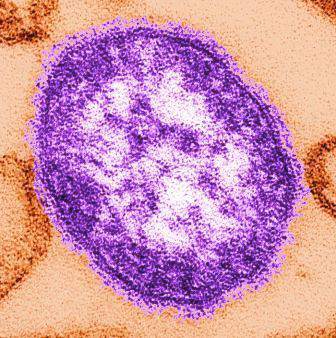FROM VACCINE
A Chinese study demonstrates a reduction of maternally derived antibodies in infants prior to vaccination for measles and human enterovirus 71 (EV71), and for coxsackievirus (CoxA16), for which there currently is no vaccine.
EV71 and CoxA16 are enteroviruses that are common agents of hand-foot-and-mouth disease. Some patients infected with EV71 or CoxA16 develop neurological and systemic complications that can kill them. An EV71 vaccine, which is initially administered at 6 months, has been licensed in China since December 2015.
Results of the study showed a decrease of measles antibody concentration from month 0 (1,410 mIU/mL), to month 3 (195 mIU/mL), and month 6 (22 mIU/mL). A comparable trend was observed for EV71 and CoxA16. Based on these analyses, 87% of infants at month 0, 25% at 3 months, and 3% at 6 months were measles antibody positive. The percentage of infants antibody seropositive for EV71 and CoxA16, respectively, was 72% and 73% at 0 months, 33% and 30% at 3 months, and 7% and 6% at 6 months (Vaccine. 2017. doi: 10.1016/j.vaccine.2017.06.002 ).
In a longitudinally designed study conducted by Chuanxi Fu and Jichuan Shen of Guangzhou (China) Center for Disease Control and Prevention, and their associates, sera was collected from 717 infants ages 0, 3, and 6 months, and examined for levels of measles IgG antibodies, and neutralizing antibodies for EV71 and CoxA16. Measles IgG antibody concentration from 717, 233, and 75 sera were assessed in infants of 0 month, 3 months, and 6 months, and 225, 217, and 72 sera were assessed for EV71 and CoxA16 at these time periods.
This study provides evidence of the rapid declining of measles antibodies in infants prior to vaccination under the Expanded Program on Immunization schedule in China, and confirms the rapid decrease of measles antibody levels suggested by prior cross-sectional studies in China. “Further modifications of vaccination strategies for measles, earlier vaccination for EV71 infection, and development and provision of a CoxA16 vaccine should be investigated and considered in the future,” concluded the researchers.




